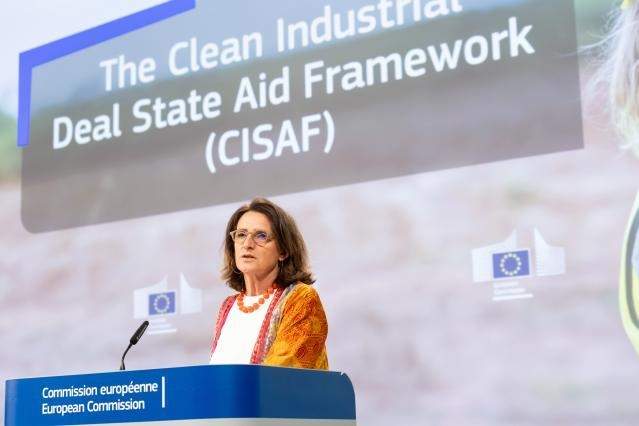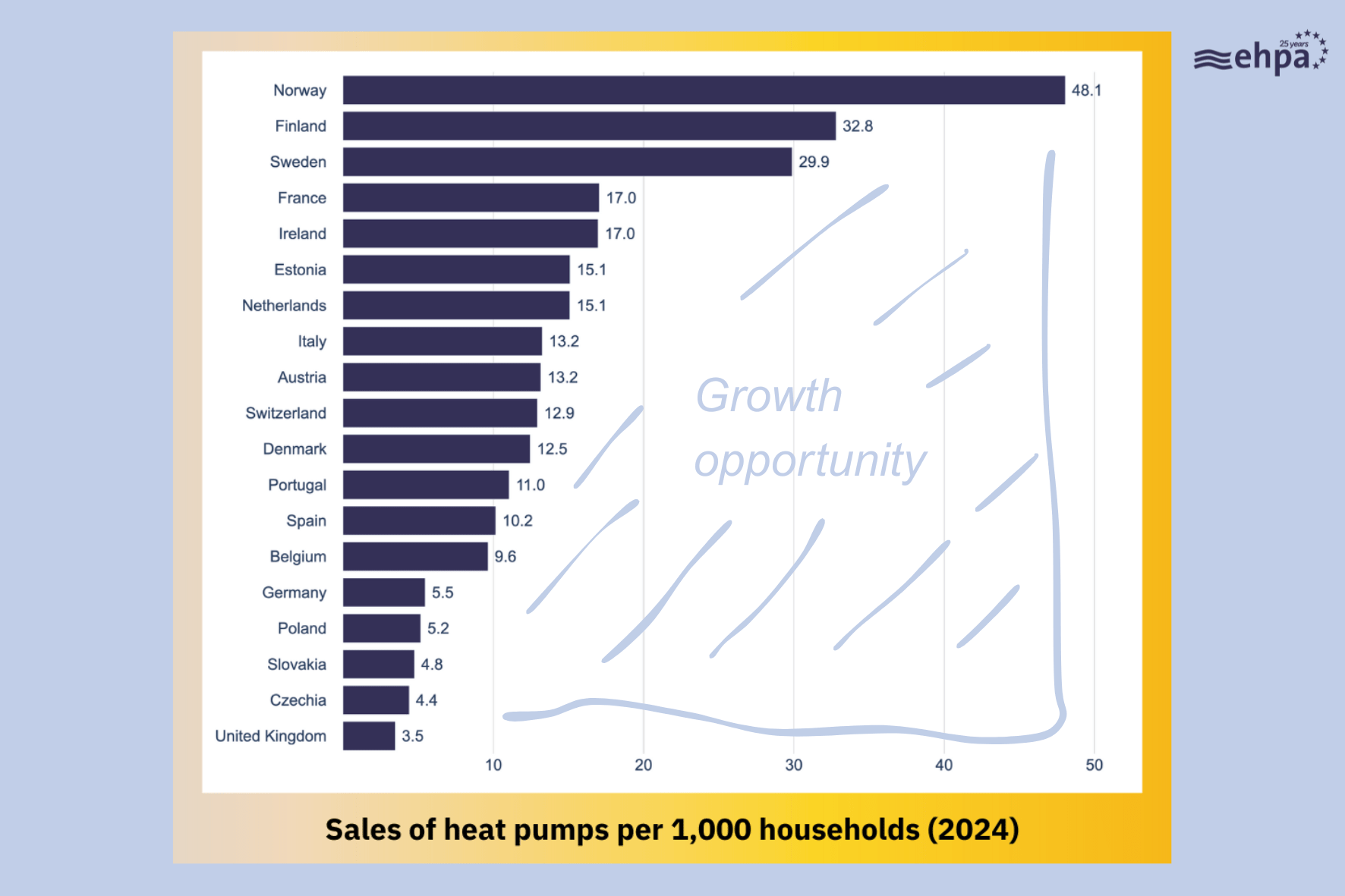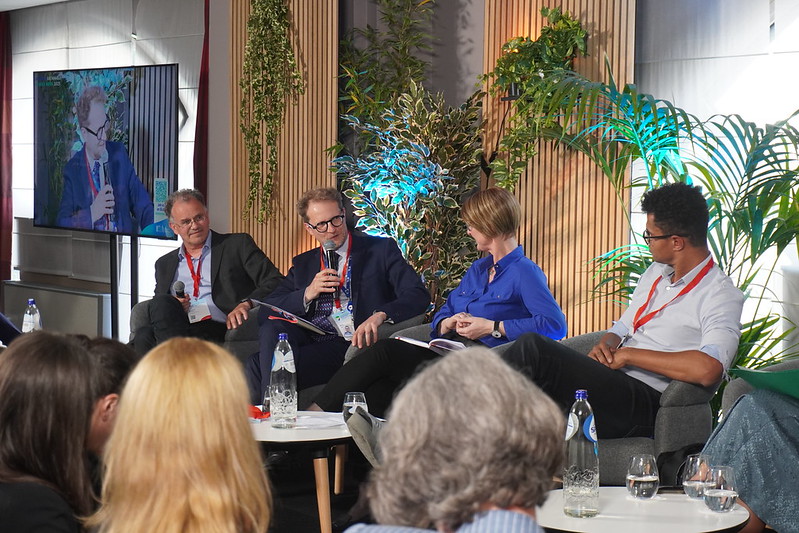What role do heat pumps play in industrial decarbonisation? This is the question that was addressed by the webinar “Sustaining success of industrial heat pumps – a call to action!” hosted by EHPA on 14 March.
The online event was organised within the framework of three EU-funded projects: SPIRIT, PUSH2HEAT and SUSHEAT. All financed by Horizon Europe, they aim to foster the uptake of high-temperature heat pumps in the industrial sector.
The webinar, which comes after the European Commission’s postponement of the Heat Pump Action Plan until after the EU election, put both the challenges and solutions in integrating industrial heat pumps into manufacturing processes under the spotlight.
As we navigate Europe’s path to net zero, policy support emerges as paramount.
“Heat pumps have long been recognised as a key technology for industrial decarbonisation. They offer highly efficient means of using renewable energy sources and recovering waste heat in sectors that are traditionally reliant on fossil fuels. Reducing upfront costs and electricity prices will be crucial to boost the deployment of industrial heat pumps” explained Alessia Del Vasto, Senior Policy Officer at the European Heat Pump Association, kicking off the discussion.
Del Vasto was echoed by Cordin Arpagaus, Senior Researcher at OST – Eastern Switzerland University of Applied Sciences:
“The market for industrial high-temperature heat pumps is growing worldwide and is being driven by the decarbonization and electrification of industrial sectors. The range of applications is broad. The market attractiveness increases with a lower electricity-to-gas price ratio. The first step in heat pump integration is a well-founded energy analysis of the processes” he commented.
However, it’s not just about challenges; industrial heat pumps have already become a reality in numerous industries and facilities. A notable success story comes from Norway, where energy engineering firm Enerin has developed and supplied high-temperature heat pumps for the chemical, paper, and food sectors.
Enerin’s CEO, Arne Høeg said “Heat pumps not only lead to savings on energy bills but are also a shield yourself from constraints like fluctuating gas prices. We have the technology to decarbonise industrial heat today, at low cost, with high efficiency, we just need to scale up its deployment.”
One of the manufacturers using Enerin’s heat pumps is fish processing company Pelagia, which produces a wide range of products, from frozen fish to fish meal and fish oil.
“Given the diverse energy requirements of our facilities, prioritising efficiency is key. Heat pumps help Pelagia reduce energy input, reduce CO2 emissions and improve the profitability of our factory” concluded Eirik Anfindsen Solberg, Pelagia’s Technical Manager and the webinar’s last panellist.
Interested in learning more about industrial heat pumps? Next week, The European Heat Pump Association (EHPA) together with the European Climate Foundation (ECF) and Die Deutsche Unternehmensinitiative Energieeffizienz e. V. (DENEFF) will be exhibiting at the Anuga FoodTec trade fair to raise awareness on the deployment and application of industrial-scale electrification and heat pumps amongst stakeholders from the food & beverage sector.
Join us in Cologne or stay tuned to EHPA’s social media channels for a series of talks on the topic!
Alternatively, you can download the slides or watch the recording of this webinar here and here.






